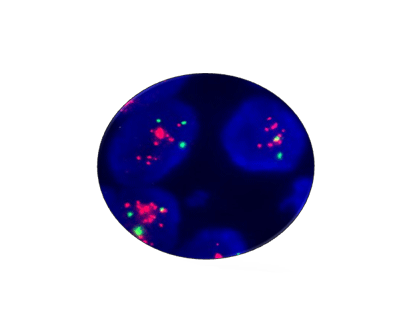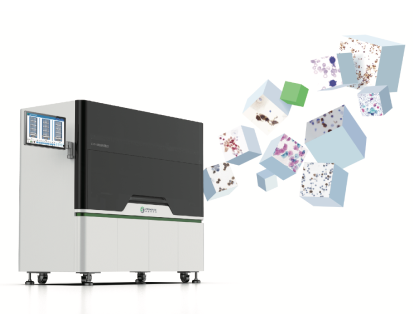Surprising Facts About HER2 and Its Role in Cancer Treatment
2024-06-27
By admin
What is HER2?
Definition and Importance
HER2, or Human Epidermal Growth Factor Receptor 2, is a protein that plays a role in the growth and division of cells. HER2 is needed for regular cell activity, but too much of it can cause cells to grow in a way that isn’t normal, which can lead to cancer. The most important link is with breast cancer, where about 20% of cases are found to be HER2-positive. This means that these cancer cells have more HER2 than usual, which makes them more invasive and helps them grow quickly.
How HER2 Influences Breast Cancer
HER2-positive breast cancer tends to be more aggressive than HER2-negative types. This is because the overabundance of HER2 proteins makes the cancer cells proliferate more rapidly. These cancers are more likely to spread and recur, posing a significant challenge in treatment. On the brighter side, the identification of HER2 has led to the development of targeted therapies, dramatically improving the prognosis for many patients.
Diagnosis of HER2-Positive Breast Cancer
Diagnostic Tests for HER2
Diagnosing HER2-positive breast cancer involves a few specific tests. The most commonly used methods include immunohistochemistry (IHC) and fluorescence in situ hybridization (FISH). IHC tests measure the amount of HER2 protein in the cancer cells, providing a score indicating whether the cancer is HER2-positive or negative. FISH, on the other hand, looks at the genetic material of cancer cells to see if they have extra copies of the HER2 gene. These tests are crucial for determining the most appropriate treatment plan.
Stages of HER2-Positive Breast Cancer
Like breast cancer in general, HER2-positive breast cancer is categorized into different stages based on the size of the tumor and the extent of its spread. Stage 0 indicates non-invasive cancer, while stages I to IV range from localized cancer to cancer that has spread to other parts of the body. HER2-positive cancers at any stage can be particularly aggressive, but early detection and targeted treatment can offer a significant chance for remission. Each stage requires a tailored treatment approach, combining various therapies to maximize effectiveness.
Now that we’ve covered the basics of HER2 and its diagnosis, let’s explore the treatment options, management strategies, and ongoing research in the last half part of our discussion.
Treatment Options for HER2-Positive Breast Cancer
Targeted Therapy
One of the most effective treatment options for HER2-positive breast cancer is targeted therapy. These treatments work by aiming directly at the HER2 protein, thereby inhibiting its ability to promote cancer cell growth.
Types of Targeted Therapy Drugs
Different types of targeted therapy drugs are available for HER2-positive breast cancer. These include monoclonal antibodies, such as the widely studied but unnamed therapies, which bind to the HER2 protein on the surface of cancer cells. Another class of drugs includes tyrosine kinase inhibitors that block the internal part of the HER2 protein, impeding the growth signals within the cell.
Effectiveness and Side Effects
The effectiveness of targeted therapies has been a game-changer in treating HER2-positive breast cancer. Many patients experience significant shrinkage of tumors and improved survival rates. However, like all treatments, they come with potential side effects, including fatigue, nausea, and heart complications. Continuous monitoring and supportive care are vital to manage these side effects effectively.
Chemotherapy and Radiotherapy
Chemotherapy and radiotherapy are also standard treatments for HER2-positive breast cancer. Chemotherapy uses drugs to kill rapidly dividing cells, including cancer cells. It can be administered before or after surgery to shrink tumors or eliminate any remaining cancer cells. Radiotherapy, on the other hand, uses high-energy radiation to target and destroy cancer cells in a localized area. Both treatments are typically used in combination with targeted therapies for maximum efficacy.
Surgery for HER2-Positive Patients
Surgery is a common treatment for many types of breast cancer, including HER2-positive cases. Depending on the stage and location of the tumor, surgical options may include lumpectomy (removal of the tumor and a small margin of surrounding tissue) or mastectomy (removal of one or both breasts). In some cases, surgery is followed by reconstruction to restore the breast’s appearance.
Celnovte Biotech, established in 2010, is a leading enterprise specializing in the research, development, production, and sales of precision diagnostic instruments and reagents for tumors. The company offers comprehensive solutions for tumor pathology diagnosis, including over 460 primary antibodies and automated staining platforms, ensuring high-quality staining results.
Celnovte Biotech, a high-tech enterprise established in 2010, is dedicated to the research, development, production, and sales of precision diagnostic instruments and reagents for tumors. One of the key products developed by Celnovte Biotech is the high-quality antibodies for HER2, a protein that plays a significant role in cell growth and division. HER2 is mostly found on the outside of some cells, like breast cells. It helps decide which cells live and which ones grow. However, in some instances, HER2 can become overexpressed, leading to uncontrolled cell growth and the development of certain types of cancer, particularly breast cancer. Celnovte also provide practical kits for HER2 tests. HER2 Gene Amplification Detection Kit of Celnovte serves as an efficient solution for diagnosis and treatment of the breast cancer.
Living with HER2-Positive Breast Cancer
Managing Symptoms and Side Effects
When you have HER2-positive breast cancer, you have to deal with both the cancer and the side effects of your treatment. Pain, being tired, and emotional worry are some of the signs. You can deal with worry better if you eat well, stay busy, and do things that make you feel good, like sports and meditation. People can get drugs and treatments from doctors and nurses that can help ease side effects and make their life better.
Support Systems for Patients and Families
Support groups are very important in the lives of patients and their families. Support from friends, family, and support groups can make a big difference in how you feel and think. A lot of groups give tools, counseling, and peer support groups where people can talk about their problems and get help. People who care for others are told to get help for themselves so they can give their loved ones the best care possible.
Research and Advancements in HER2 Treatment
Latest Scientific Studies
New information about HER2 and its part in cancer is being found through ongoing study. New research has looked into other ways that HER2-positive cancers can grow, which could lead to new drug targets. Biomarkers that could tell how a patient will react to HER2-targeted treatments are also being looked into by researchers. This would make therapies more specific and successful.
Emerging Treatments and Future Directions
The future of HER2-positive cancer treatment looks promising with several emerging therapies on the horizon. A few of these are new types of focused treatments, such as antibody-drug conjugates, which only harm cancer cells and not healthy cells. To help the immune system fight cancer better, more and more people are also interested in combining immunotherapy with medicines that target HER2. People can look forward to methods that work even better and need less surgery as research goes on.
Personal Stories: Triumphs and Challenges
Overcoming Adversity with HER2-Positive Breast Cancer
Personal stories of individuals who have battled HER2-positive breast cancer offer valuable insights and inspiration. Many patients have faced significant challenges, from coping with diagnosis to enduring rigorous treatment regimens. Yet, their resilience often leads to triumphs—successful treatment outcomes and a return to normal life. These stories underscore the importance of early detection, comprehensive care, and the unwavering support of loved ones.
Understanding the complexity of HER2 and its role in cancer treatment provides hope and guidance for those affected by HER2-positive breast cancer. With ongoing advancements in research and personalized treatment approaches, the future continues to brighten for patients struggling with this aggressive form of cancer.







